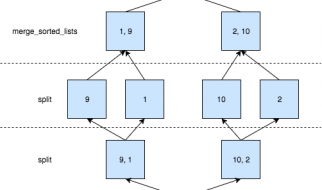
One of the growing trends in popular Christianity is the theological approach better known as Calvinism. This approach, named after its founder John Calvin, asserts that God has already pre-determined who will go to hell and who will go to heaven but has left us in the dark.
Not only does this stance on salvation and the character of God cross the fence of heresy ? it spits in the face of the God of the Bible.
We are warned in the Bible of doctrines of demons that will come into the church in the end times. Some of those doctrines include things like what foods we can or cannot eat, confusion related to the truths about marriage, and seeker-sensitive content (1 Timothy 4:1?4; 2 Timothy 4:1?5). This leads to a sense of pride instead of humility and can be a doorway to many other false and dangerous doctrines.
Calvinism doesn?t fall into the category of a diet doctrine or a non-biblical approach to marriage, but it does become seeker sensitive rather fast. Not only that, but in defense of Calvinism, you will start to see characteristics of proponents of this idea start to take their alignment with John Calvin instead of scripture.
We were also warned of this exact thing ? associating yourself too much with a teacher that is human instead of taking God at His word ? in 1 Corinthians 3:4.
With that being said, we do have the obligation to take this matter seriously if there are people around us clinging to this doctrine. We are not to come across prideful, but rather attempt to win our brothers and sisters in Christ by sharing the truth.
The Bible is clear that the truth is what sets us free (John 8:32) ? and that includes any bondage that comes attached to a false idea of who God is and what His character truly is.
Let?s take a look at the five points at the core of Calvinism and walk away with an understanding of what those five points mean and how they compare to what the Bible tells us about who God is.
Point One: Total Depravity

By definition, the concept of total depravity is that we are completely unable and unwilling to recognize the truth without God drawing us. This conclusion, from the Calvinist perspective, is derived from reading John 6:44.
Here?s what that scripture says, quoting the words of Jesus:
?No one can come to Me unless the Father who sent Me draws him, and I will raise him up at the last day.?
Based on this reading, it?s easy to see where they?re coming from. The Bible claims that truth is established on the account of two or three witnesses, and that this rule is even something that determines the order of things done from heaven (1 John 5:7, Matthew 18:16, Hebrews 10:28, Revelation 11:3, 2 Corinthians 13:1?14).
This means that we need to make sure that the statement in John 6:44 isn?t addressed or fulfilled later in scripture. If this is the case, then it changes the meaning and interpretation entirely.
Jesus makes it clear that we cannot come to Him without being drawn ? right? Later in the gospel of John, we find that Jesus ascending into heaven is what will draw all men to Him (John 12:32).
It?s at the point of the ascension that all men are now drawn with the ability to choose to follow or choose to rebel. If we are drawn, the next question that needs to be answered is how we can know that we have a choice.
This is a simple point to explain, but a vital one to remember, understand, and share with others who have this same question cross their mind.
The good news of the gospel is that through faith we are given grace and forgiven of our sins due to what Jesus did for us by dying on the cross and coming back to life. Putting your faith in something is as much a choice as any of the other choices that you?ve made in life ? yet Calvinism denies that Christians have that ability.
We know that God does not change who He is (Malachi 3:6, Hebrews 13:8, James 1:17) which in turn means that the character of God is not different between the old and new testaments. In the old testament, God makes it clear to the nation of Israel that they have two options in front of them.
Those options are to choose life or death (Deuteronomy 30:15?20, John 3:16?18).
As another example, in the Garden of Eden, the devil had to make Eve choose to rebel against what God had commanded her and Adam to do.
We are told in scripture that we cannot please God without having faith (Hebrews 11:3, Hebrews 11:6, James 1:5?8). We are also told that God wants none of us to perish (2 Peter 3:8?9) and that the gospel is now available to all men through Jesus? death and resurrection (Titus 2:11).
Given the contexts of these parts in scripture, especially in the book of James, we see that the choice at hand is between having faith or having doubt, with very real consequences for both actions.
The counter from Calvinists to this rebuttal is that God?s ability to foreknow things means that He has already predestined things. Where this comes from is a misunderstanding of scripture that points to there being a plan in place for Jesus to be the sacrifice for the whole world from the beginning of time and for those who believe in Him to be saved as part of the plan.
The verses that discuss this plan of action, if you will, are Acts 2:23, Revelation 13:8, and Romans 8:29. In particular, the section in Romans 8:29 talks about people that God ?foreknew? ? this is another place where Calvinists will jump in and likely say that this proves that God?s foreknowledge equals predestination.
However, we can confirm with other witnesses in the Bible, that God foreknows all of us and the plan in Romans 8:29 is revealed to be one where those who are foreknown (all) have the chance to be saved through Jesus (choice).
The verses that talk about God foreknowing us include: Psalms 139:13?16, Galatians 1:15, Ephesians 1:3?4. If God knows everything, including things from the future, it is a reinforced assertion that the foreknowing mentioned in Romans 8:29 applies to all people having the opportunity to be conformed to the image of Jesus through faith.
Otherwise, why would we be told to tell the whole world about the good news? It seems cynical to do so knowing that God?s already pre-approved who goes where with you, of course, being on the safe side and part of an exclusive elect.
Not to mention the fact that God tells us that the sacrifice of Jesus was for the sins of the whole world and that the plan of having Jesus die for the whole world came out of the love that God has for His entire creation.
The takeaways from this first point is that we do have a choice; that choice must be to believe in what Jesus Christ accomplished on the cross to be saved and that we cannot please God without choosing to have faith.
TL; DR: We have always had a choice to obey or disobey God ? this ability to chose is consistent with God?s character in the old and the new testament.
Point Two: Unconditional Election

The second point of Calvinism is the concept of unconditional election. This is the idea that we cannot do anything to be saved since God is so sovereign that if it was predestined to happen it will happen.
This default salvation mindset is not only opposite of scripture, but it is exactly how Satan can minimize the impact of ministry in the last days. It allows room for still ministering to those around us, but impacts our motive behind it severely.
Instead of approaching a situation about a person?s salvation from a perspective of knowledge being needed to come to the realization of the truth (Proverbs 11:30, Hosea 4:6) we take ourselves out of the situation entirely. This mindset makes us passive towards salvation, sometimes even allowing people to walk away from an unfinished conversation with no follow-up and no persistence.
We are told in the Bible that it is not possible to please God without having faith (Hebrews 11:6). It?s been established already that having faith is a choice and that those without faith in what Jesus has done on the cross are in trouble when it comes to eternity (John 3:18).
Knowing that the outcome of our eternal position is determined by our faith ? or lack thereof ? we can come to the conclusion rather quickly that election (being conformed to the image of Jesus) is conditional on the basis of faith.
TL; DR: Faith is the condition for salvation based on what the Bible tells us in more than one place. This disproves the idea of unconditional election or unconditional election.
Point Three: Limited Atonement

This is perhaps the most heretical part of Calvinism ? the idea that Jesus didn?t die for everyone, just the elect (or pre-saved).
The reason that this is such a core part of Calvinism is that this has to be a true statement in order for the rest of this belief to have a chance. If limited atonement from what Jesus did on the cross is true, select salvation can also be true and Calvinists gain an edge.
For this to be true, there are several things that must be backed up by scripture. The first is that Jesus did not die for us while we were sinners. The second being that there is absolutely no choice to follow Jesus and accept the truth. And then third, we must find somewhere in scripture (on more than one occasion) that the atonement on the cross was not for the entire world.
That being said, let?s dive in.
Tackling the first point, let?s see what the Bible says about whether or not the atonement was provided to us in our sin.
Upon digging into this, we find that Jesus died for us while we were still sinners (Romans 5:8). Also, according to Jesus Himself, the whole point of Him coming to Earth was to save those who need saving (Mark 2:17). We find out who is need of saving based on what Paul writes in his letter to the Romans when he states that ?we have all fallen short of the glory of God? (Romans 3:23).
This means that we?re all in a position of needing to be saved and can only be saved ? or reconciled with God ? through faith. The reason this is crucial is that limited atonement implies that we deserved grace before we experienced it because it was predetermined, which is not true.
We?ve never deserved the grace of God, but it has been made available as a gift through faith (Ephesians 2:8?10). Thinking that you deserve the grace of God because you?re part of an elect club that you?re conveniently a part of is exactly what the Pharisees used to argue with Jesus (they thought their bloodline could save them).
Let?s continue.
Our second point of analysis here is determining if the Bible supports the idea of having a choice to follow Jesus or not. Even when it comes to when Jesus started gathering His disciples, we see that they had to choose to follow Him after being called (Mark 1:16?20, Matthew 4:18?22).
In order to save this from being redundant, the argument that we don?t have a choice in salvation is addressed already in the first two points. The short and sweet answer to this question is that we absolutely choose to have faith or disbelieve and this directly determines where we will spend eternity.
Lastly, let?s address whether or not the atonement of Jesus was offered to everyone or just those who believe. Please note that this is different from the notion that the blood of Jesus only gets applied to those who believe. The difference is a matter of who it is offered to, not a matter of who it covers.
We know that salvation is a free gift offered to all men (Titus 2:11?15) and that God wants all people to come to repentance (2 Peter 3:9, Romans 10:5?15).
This is the exact opposite of what limited atonement teaches.
It?s amazing what can happen when we allow God to speak for Himself through His word.
TL; DR: Limited atonement is a false doctrine that what Jesus did on the cross is not made available to anyone who believes. Salvation is a free gift to all men accessed through faith and God does not want anyone to perish, according to the Bible.
Point Four: Irresistible Grace

The fourth point at the center of the Calvinism doctrine is the idea of irresistible grace. In summary, this is the concept that those who are truly saved (or pre-determined to be saved, we should say) will not be able to resist the grace of God.
Again, this all goes back into whether or not we have our own free will and the ability to make our own decisions. Most Calvinists would argue from here that they are on the same page with non-Calvinists and will try to get you to agree that the issue here is really about God?s sovereignty ? it?s not.
Irresistible grace is a grace that is forced onto us instead of being offered as a gift. The key to remember here is that salvation is a gift that is received through faith and accessed by grace ? meaning grace is also a gift.
If we know God?s character, we know that He wouldn?t give us a gift by forcing us to accept it. In fact, we know that God knows how to give us the best gifts because Jesus equates what God gives us with how a loving father cares for his own children (Matthew 7:7?12, Luke 11:9?13).
Another thing to keep in mind is that the theme of both of these passages in scripture explain the gifts that God is willing to give those who ask in faith is the fact that they need to be requested. You have to choose to ask God for things that are on your heart, and as we?ve already discussed, you have to choose to have faith.
So what does any of that mean or have to do with irresistible grace?
The passages show that we must choose to ask for things on our heart, meaning we have the ability to not ask at the same time. Verses that support the stance that we have the ability to harden our own hearts include Proverbs 29:1 and Acts 7:51.
The claim in Acts 7:51 against Israel is literally that ?you always resist the Holy Spirit; as your fathers did, so do you.?
TL; DR: The grace of God is not irresistible based on what we find in the Bible. Look at Acts 7:51 and Proverbs 29:1.
Point Five: Perseverance of the Saints

The last point of Calvinism we?ll be dealing with is the perseverance of the saints. From the Calvinist point of view, this part of their doctrine is the one that they can use to get along with any fellow believer.
It is the concept of being saved forever once you are saved and that you cannot lose your salvation. While it is true that believers have grace and that true believers will walk in humility because they are still not perfect people, the way someone can still lose their salvation is by walking away from the faith (1 Timothy 1:18?20).
We?re not perfect.
The point of those verses is to show that it is possible for those who have seen the truth to walk away, but in an act of repentance God will forgive us (1 John 1:9).
One last thing to remember when it comes to Calvinism is just because there is one part that lines up with scripture within context does not mean that the doctrine is to be accepted. The Bible makes it clear that ?a little leaven leavens the whole? (Galatians 5:9) ? meaning that a mix of the truth with a lie is still a lie.
Also, not to leave this out, we have to remember who our enemy is and his purpose in battling those of the faith (1 Peter 5:6?11). Paul gave a warning that he was concerned that Satan was going after believers the same way that he went after Eve in the beginning ? by mixing a little bit of truth with a lie (Genesis ch.1?3, 2 Corinthians 11:3?4).
The passage in 2 Corinthians is extremely powerful because it outlines how we can define doctrine that comes from the enemy. Laid out as clear as can be, the enemy hides behind half-truths and behind ?another Jesus? ? that should scare us.
When you think about the faiths of the world, this really does start to make sense though.
For instance, Mormonism teaches that Jesus was a created being who is really our spirit brother that became God ? that is not the Jesus of the Bible. Islam teaches that Jesus was just a prophet and a good teacher but not divine ? that is not the Jesus of the Bible.
In that same way, Calvinism teaches a Jesus that did not come to save all and did not come to give us a choice between eternal life and eternal damnation ? that is not the Jesus of the Bible.
TL; DR: A little leaven leavens the whole lump. 1 Timothy 1:18?20. Galatians 5:9. Genesis ch.1?3. 2 Corinthians 11:3?4.

